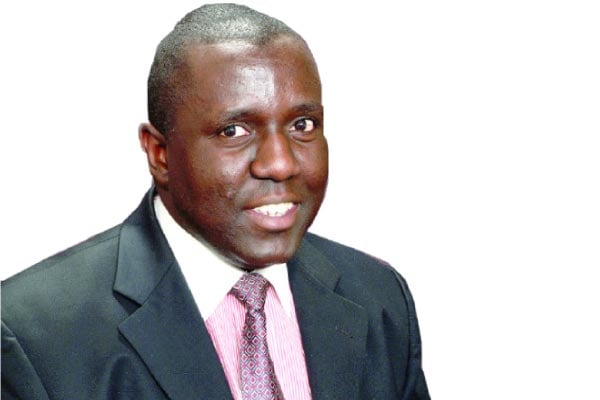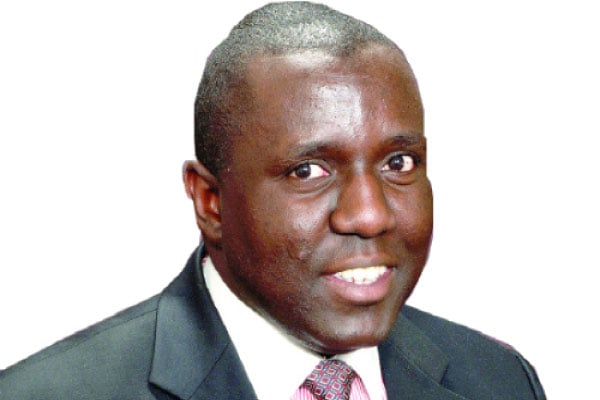Prime
It’s time to adopt the district court system

Author: Karoli Ssemogerere. PHOTO/HANDOUT
What you need to know:
- Judicial officers spend Mondays and Fridays traveling to and from judicial stations, and stopping at their upcountry homes ...
Call it the supreme call. The seven judges of Kenya’s Supreme Court dismissed the presidential election petition, declaring William Samoei Ruto as the President-elect and ending Raila Odinga’s fifth presidential campaign.
In a nod to even-handedness after dismissing all of his claims, the court ordered each party to bear its costs. Perhaps this shields Odinga from debilitating costs normally awarded to the successful party. This practice is gaining traction in many courts including Uganda where litigation deemed to be in the public interest, does not end with an award of costs to the successful party.
In Uganda, there was another quick discursive supreme battle between Justice Esther Kisaakye of the Supreme Court and the Permanent Secretary to the Judiciary, Mr Pius Bigirimana.
The Permanent Secretary abandoned the standing orders by unilaterally freezing the judge’s pay without reference to the appointing authority. Appointment and dismissal of judges is a constitutional matter with safeguards intended to protect the independence of Judges.
One of the cornerstones of these safeguards protects judges from having their pay varied to their disadvantage while in office.
In employment law, the action of the Permanent Secretary would possibly amount to constructive dismissal and unlawful termination. The Permanent Secretary appeared to have ignored the basic tenets of fair hearing, and protected grounds including the fact that the judge has been on; and off on sick leave.
The hypocrisy of the Permanent Secretary’s letter forgot that many other public service holders have continued to hold office even after spending very long periods on sick leave. These include the Permanent Secretary Office of the Prime Minister, Keith Muhakanizi, or even the Governor of Bank of Uganda who practically spent his last years in office on sick leave. Payment of salaries and fringe benefits to judges continues to their last day on earth under the Administration of Justice Act unless a judge is removed from office.
The politics of appointment, removal, and stagnation in the public service has been eclipsed by the government’s selective incentives to boost pay to some civil servants ahead of others. In the Judiciary, the salary scales of medium level and senior judicial officers are multiples of those of the support staff (clerical, researchers) and others who are equally essential to the performance of the judicial officers.
It is now routine for a clerk to locate a physical file or make an entry in the Electronic Court Management system fully expecting a tip. Performance is also affected by the huge caseload that is overwhelming judicial officers.
In the High Court, a judge is expected to hear and determine applications for judicial review given their urgency in three months, a milestone now only accomplished in the most political of cases. In other cases, a judge is expected to hear and determine cases in six months, another impossibility as resources, logistics and skills are mismatched.
Upcountry judicial officers spend Mondays and Fridays traveling to and from judicial stations, and stopping at their upcountry homes on the way. It may be time to adopt the District Court system where a judge is appointed to head a High Court in a district for their entire tenure as a Judge until promoted or otherwise. Adhoc transfers only serve to create more uncertainty in the system.
The law should also be reviewed to allow senior judges to continue on a part-time basis as they are now being paid 80 percent of their last pay. In the United States, retired Judges hear interlocutory matters and supply inferior courts when a panel cannot be constituted.
The efficiency with which the Kenyan Supreme Court discharged the presidential election petition, no drama, extremely unpredictable was another record first for Kenya which has distinguished itself from its neighbours.
It wasn’t a very good comparison with how the presidential election petition ended in Uganda. These and other matters for reflection and the tragic end of Raila Odinga’s fifth attempt at the presidency.
Mr Ssemogerere is an Attorney-At-Law and an Advocate. [email protected]



